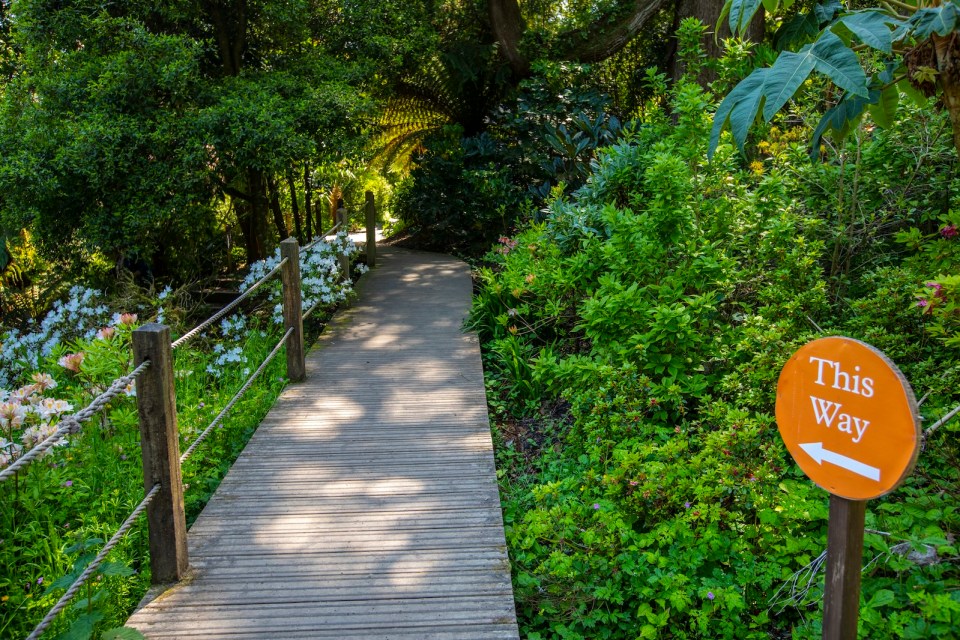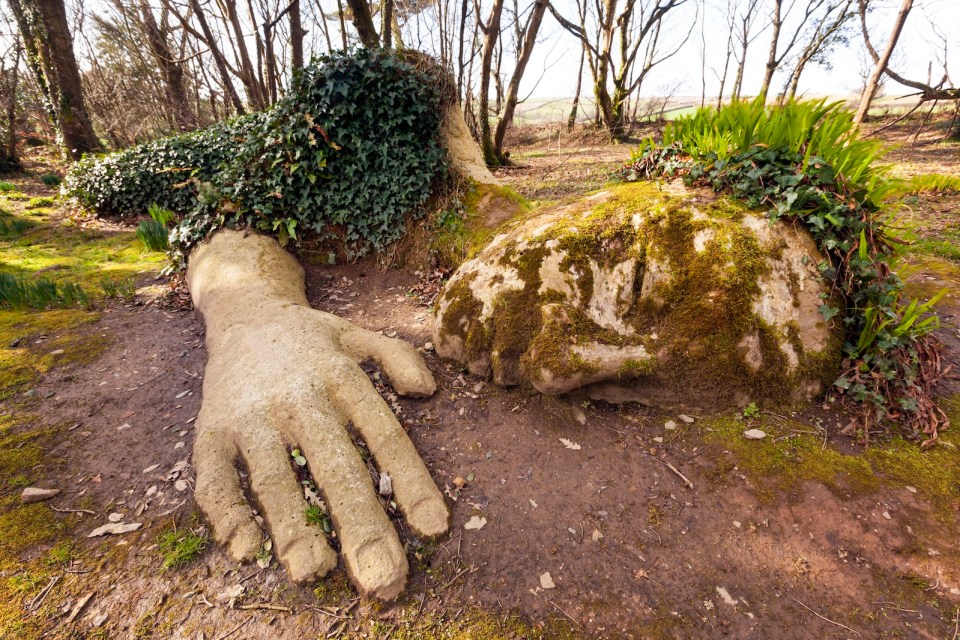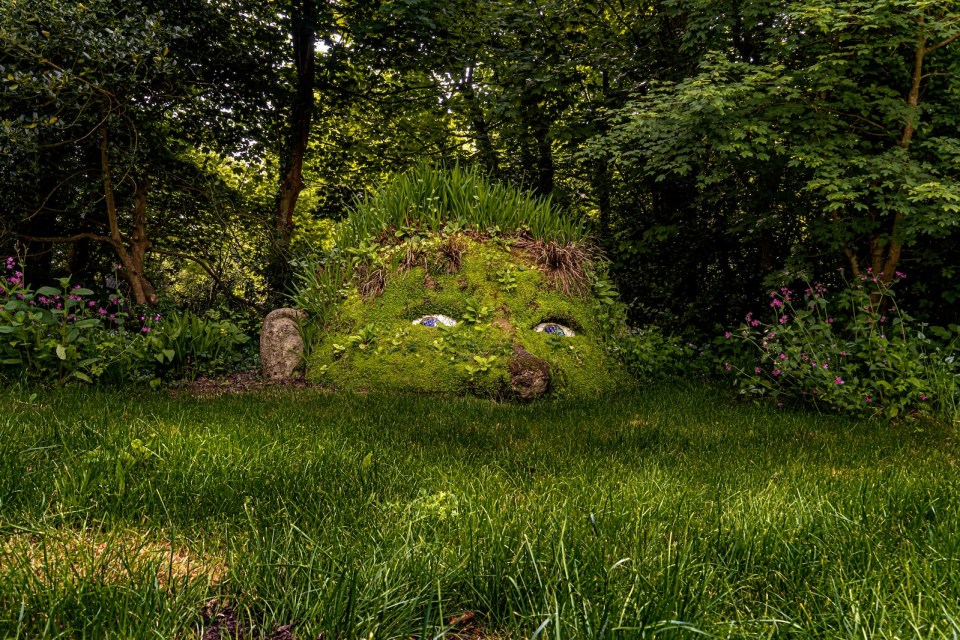Head designed with plants in the Lost Gardens of Heligan in Cornwall near Mevagissey, one of the most popular botanical gardens in the UK, England, United Kingdom, Great Britain
Photo by depositphotos.com
In the 16th century, the Tremayne family began cultivating a lush garden at Heligan Estate in Cornwall that blossomed into one of the most celebrated green spaces in all of England. Prior to the outbreak of World War I, Heligan Estate employed 22 gardeners who tended to a pineapple pit, tropical flowers and ferns, and a lovely Pleasure Garden that was ideal for relaxing. After 16 gardeners perished in the Great War, Heligan’s verdant gardens languished for most of the 20th century.
In the 1990s, an extended relative of the Tremayne family and a songwriter named Tim Smit banded together to restore Heligan to its former glory. Thanks to their efforts, the Lost Gardens of Heligan have become one of the most beloved attractions in Cornwall. For a modest fee, visitors can spend hours exploring a sprawling collection of gardens with features such as gigantic plant sculptures, towering palm trees, and a stately jungle tucked away in the chilly English countryside.
Two of the Lost Gardens of Heligan’s most eye-catching ornaments are plant-adorned sculptures of a Giant’s Head and a reclining Mud Maid that were created by artists Pete and Sue Hill. Both sculptures are blanketed in foliage that changes depending on the season. Visitors can view the Giant’s Head and the Mud Maid at the beginning or the end of the journey through the Lost Gardens of Heligan in the Woodland Walk section.

A walkway in the Jungle area of the Lost Gardens of Heligan in Cornwall, UK.
Photo by depositphotos.com
It generally takes about 2.5 hours to tour the Lost Gardens of Heligan. Most visitors enjoy spending extra time in the Jungle Valley portion of the gardens, which is home to tropical flowers, ferns, and trees thanks to a microclimate that is 5 degrees warmer than the surrounding terrain. Jungle Valley even features a Burmese rope bridge that will make you feel as though you are adventuring deep into the heart of a secluded jungle.

Mud Maiden at the Lost Gardens of Heligan, Cornwall, England.
Photo by depositphotos.com
No visit to the Lost Gardens of Heligan is complete without a stop at the Productive Gardens, which grow heritage fruits, vegetables, and herbs that are used as ingredients for dishes served at an on-site…
Click Here to Read the Full Original Article at Unusual Places…
